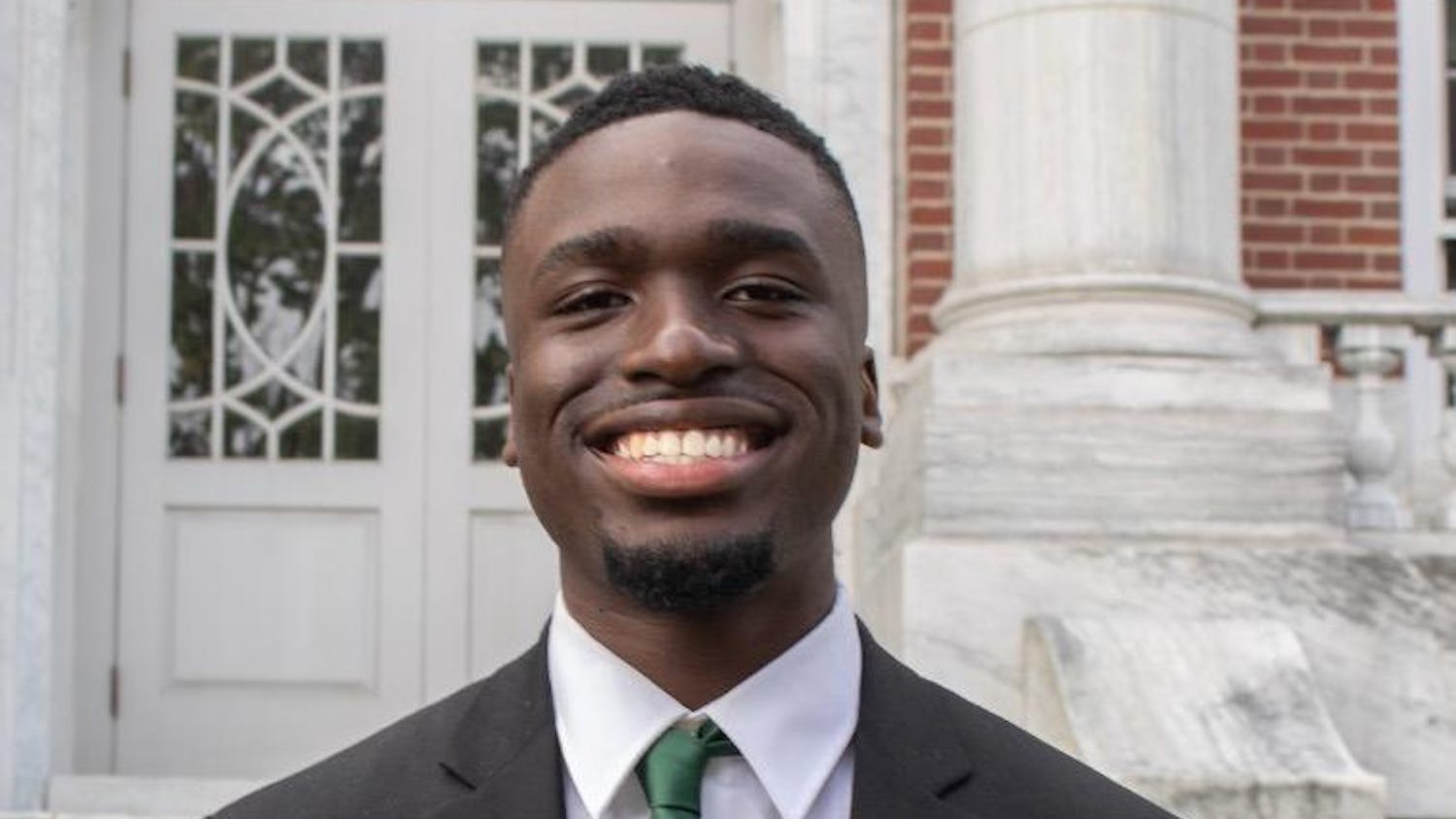Fall Gala, Tuftonia's Day Carnival, weekly movie nights and more. The Tufts University Social Collective (TUSC) organizes over 200 social events each year.
TUSC aims to appeal to a variety of students.
“As a student organization, they work hard to represent the needs and interests of all students and the board consists of representatives from a variety of socioeconomic backgrounds, degree programs, class years, racial and ethnic identities and interests to ensure their events are relevant, affordable and appealing to a variety of students,” Associate Director for Campus Life John Wescott said in an email.
The organization's events offer opportunities and spaces to have fun and socialize for students who might not want to go out on a Friday or Saturday night, according to TUSC Executive Co-Coordinator Noah Brown.
One of TUSC’s goals is to provide alternatives to alcohol-centered parts of social life. Research was conducted over the summer on "high-risk" weekends, according to Executive Co-Coordinator Siobhan Shamlian.
“Recently, TUSC has been thinking a lot about bringing different communities together in social spaces, and also helping to address the increase in alcohol related conduct cases across campus by hosting additional mid-evening and traditional late night programs that aim to disrupt ‘pregaming’ and provide alternative social spaces for those that do not wish to drink,” Wescott said.
For example, TUSC had a particularly rigorous Halloweekend programming series this past fall.
“We shifted our programming model to help reduce high risk behavior and help students build healthy relationships and resiliency during high stress times during the semester,” Shamlian wrote in an email.
TUSC may now be an easily identifiable presence on campus, but many students are not aware of the inner workings of the organization and how it has changed in recent years.
Proposals for events come from members of TUSC and the newly-formed Team TUSC. Team TUSC is a group that conceptualizes ideas for upcoming events, volunteers at TUSC events and plans events, Brown and Shamlian told the Daily in an email. Team TUSC will be having its first meeting on Jan. 27. Twice a year, TUSC sends out a form to its members requesting potential event ideas, vendors of interest and what date and time they would like the event to take place. Before proposing an event, members are encouraged to extensively research their ideas and plans.
“Just really go out there and see what you can come up with,” Shamlian said.
The TUSC Executive Board then reviews all the proposals. TUSC leaders work closely with the Office for Campus Life (OCL), specifically with Wescott as their advisor, to assist members’ understanding of students’ needs and how to program accordingly. According to Wescott, he meets regularly with the programming teams to discuss event logistics, representation, affordability and access.
As for the financials, TUSC receives all of its funding from Student Activity Fee dollars that are distributed by the Tufts Community Union (TCU) Senate; TUSC receives over $800,000, a budget which students can find on the TCU Senate website. Each TUSC subgroup has its own budget.
“TUSC actually pays OCL for services, such as event staff or Tufts Tickets, just like all the other 340 student organizations,” Wescott said. “The only time that TUSC receives university funding is when a department or University program co-sponsors a special event – such as the Halloweekend Series or Roller Rink in Tisch Library which are collaborative efforts with TUSC and many departments such as the Dean of Student Affairs office, Tisch Library, Health and Wellness, Residential Life and Learning, and [The Office of] Fraternity and Sorority Life.”
TUSC has asked for and collected an increase in funding in the past four years due to increasing costs of materials.
“We don’t want to increase pricing for students because that’s not fair and we want to make sure that our programs are accessible for all people on campus, no matter their socioeconomic status,” Shamlian said.
Funding is not the only factor that has changed. Last year, TUSC underwent a reorganization and rebranding to streamline their event planning and image. According to Brown, a committee rewrote the organization’s constitution, changing approximately 60 to 70% of what TUSC was. This marks the first year under the new structure.
TUSC was originally divided into groups by class year. Under this system, budgets would get mixed up.
“So last year, we needed to cut down on the number of people on TUSC and simplify everything,” Brown said.
Brown and Shamlian explained TUSC’s new structure in an email to the Daily. The class groups were combined to form three specialized groups: TUSC Traditions, Late Night and Weekend Programming and Daytime Programming. TUSC Traditions is led by four to eight coordinators from different class groups and organize events such as Tuftonia’s Day, Fall Gala, Winter Weekend and Welcome Weekend. The Daytime Programming and Late Night and Weekend Programming teams each have two coordinators and were added to pre-existing committees within TUSC.
So far, the new structure has been seen as a success, as members are in smaller, more personal groups, Brown said.
“[The benefit of working with multiple classes is] getting different input because people are in different places in their college careers, and we have anyone from first-years to seniors on Traditions,” Brown said. “Because we’re a smaller group now, we’re closer and can feed off ideas off of each other a lot better.”
Apart from structural changes, TUSC has also transformed its appearance within the past two years, to which Brown and Shamlian credit TUSC’s marketing team. Before the marketing team, members would have to make posters themselves.
“Getting a marketing team was really huge for promoting our brand - we got a more cohesive branding situation,” Shamlian said. “We became more specialized and way more effective.”
The increased marketing could be due to TUSC becoming a familiar presence on campus and increased attendance at events.
"Two years ago TUSC was not a recognized brand on campus,” Brown wrote in an email. “Now, because of some amazing work from our marketing team and our coordinators, students identify the TUSC logo with fun, high quality, and inclusive programming."
While attendance varies depending on the event, recent occasions demonstrate TUSC’s popularity. According to Shamlian, the apple-picking trip this year sold out in under two minutes, and some of the senior events have sold out in under three. At the roller-rink in Tisch this November, 700 people attended, 300 of which arrived within the first 10 minutes.
TUSC aims to deliver events of all sizes and niches, and their evolution has proven to be a success on campus. First-year Victoria Chen echoes this sentiment.
“Without those on-campus events, I wouldn’t be as close with my friends, and TUSC is doing a great job,” Chen said.





